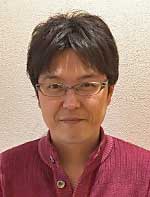Yuki Yano Assoc. Prof. Ph.D. (Agricultural Economics)
 Yuki Yano
Yuki Yano
| Name | Yuki Yano |
|---|---|
| Position | Assoc. Prof. |
| Degree | Ph.D. |
| Office | C-4F 417 |
| y.yano@ chiba-u.jp |
|
| Website | https://researchmap.jp/yzy_114?lang=en |
Yuki Yano was born in Funabashi, Chiba Prefecture. He received his B.S. and M.S. degrees in horticultural economics from Chiba University in 2003 and 2005, respectively, and Ph.D. degree in agricultural and environmental economics from the Pennsylvania State University in the United States in December 2008. Following Postdoctoral Fellowship at the Swedish University of Agricultural Sciences (SLU) and lecturer at the Department of International Business Management at Kyoei University, he joined the Department of Food and Resource Economics at Chiba University in 2016 and currently holds the positions of Lecturer. He is currently conducting research on consumer attitude and behavior towards agricultural and food products using innovative text-mining methods. His primary areas of teaching include agri-food business and marketing science.
Publications
- Yano, Y., Nakamura, T. and Maruyama, A. (2016) Factors influencing the level of anxiety toward vegetables grown in plant factories using artificial light: A case of JA farmers' market in Fukushima, Journal of Rural Problems 52(4), 235-240.
- Yano, Y., Nakamura, T. and Maruyama, A. (2016) Consumer perception and understanding of vegetables produced at plant factories with artificial lighting, Toyoki Kozai et al. (Eds): LED Lighting for Urban Agriculture, Singapore: Springer, 347-363.
- Yano, Y., Nakamura, T. and Maruyama, A. (2015) Consumer perceptions toward vegetables grown in plant factories using artificial light: An application of the free word association method, Focusing on Modern Food Industry 4, 11-18.
- Yano, Y., Nakamura, T. and Maruyama, A. (2015) The impact of crude oil prices and exchange rates on closed system horticulture in Japan: An application of a vector error correction model, Japanese Journal of Farm Management, 53(2), 1-11 (in Japanese).
- Chen, Z., Yano, Y. and Nakamura, T. (2014) The impact of new airport construction on tourism industry growth : A case study of Hong Kong and Singapore, Journal of Agricultural Development Studies 24(3), 64-71 (in Japanese).
- Nakamura, T., Yano, Y. and Xiaohua, Y. (2014) German Citizens' Attitudes Towards Measures for Preventing and Controlling Radioactive Pollution and Promoting Renewable Energy: Using online Survey Tool, Journal of Agricultural Development Studies 24(3), 49-63 (in Japanese).
- Nakamura, T., Yano, Y., Maruyama, A. and Xiaohua Y. (2013) Aomori apples purchasing behavior in four countries in Europe - Tasting surveys in the United Kingdom, Germany, Sweden and Norway, Journal of Agricultural Development Studies 23(3), 73-85 (in Japanese).
- Yano, Y., Blandford, D. and Surry, Y. (2012) From ethanol shuffle to ethanol tourism - Why the RFS does not make sense, Choices 27(4), 4th Quarter, Agricultural & Applied Economics Association, 1-4.
- Yano, Y. and Blandford, D. (2011) Agri-environmental policy and moral hazard under multiple sources of uncertainty, European Review of Agricultural Economics 38(1), 141-155.
- Miranda, S., Swinbank, A. and Yano, Y. (2011) Biofuel policies in the EU, US and Brazil, EuroChoices 10(3), 11-17.
- Nakamura, T., Maruyama, A. and Yano, Y. (2011) Export potential of Aomori apples in the Helsinki market - Based on the questionnaire survey at Finland WINE, FOOD & GOOD LIVING 2009, Journal of Agricultural Development Studies 22(1), 21-32 (in Japanese).
- Yano Y., Blandford, D. and Surry, Y. (2010) Do current US ethanol policies make sense?, Policy Issues 10, Agricultural & Applied Economics Association, 1-4.
- Nakamura, T., Yano, Y. and Maruyama, A. (2010) Japanese consumers' evaluation of Aomori cloudy apple juice - A focus on juice standardization and production attributes, Japanese Journal of Farm Management 48(2), 11-23 (in Japanese).
- Yano, Y. and Blandford, D. (2009) Use of compliance rewards in agri-environmental schemes, Journal of Agricultural Economics 60(3), 530-545.